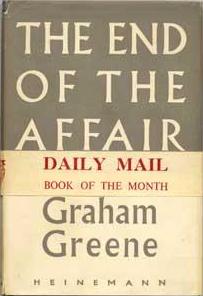
Henry Graham Greene was an English writer and journalist regarded by many as one of the leading novelists of the 20th century.
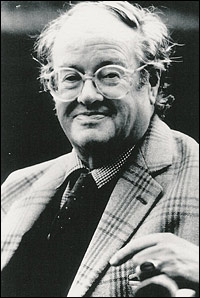
Sir John Clifford Mortimer was a British barrister, dramatist, screenwriter and author. He is best known for novels about a barrister named Horace Rumpole.

The Heart of the Matter (1948) is a novel by English author Graham Greene. The book details a life-changing moral crisis for Henry Scobie. Greene, a former British intelligence officer in Freetown, British Sierra Leone, drew on his experience there. Although Freetown is not mentioned in the novel, Greene confirms the location in his 1980 memoir, Ways of Escape.
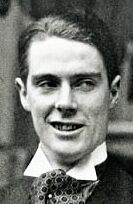
Anthony Dymoke Powell was an English novelist best known for his 12-volume work A Dance to the Music of Time, published between 1951 and 1975. It is on the list of longest novels in English.

Brideshead Revisited: The Sacred & Profane Memories of Captain Charles Ryder is a novel by English writer Evelyn Waugh, first published in 1945. It follows, from the 1920s to the early 1940s, the life and romances of the protagonist Charles Ryder, most especially his friendship with the Flytes, a family of wealthy English Catholics who live in a palatial mansion called Brideshead Castle. Ryder has relationships with two of the Flytes: Sebastian and Julia. The novel explores themes including Catholicism and nostalgia for the age of English aristocracy. A faithful and well-received television adaptation of the novel was produced in an 11-part miniseries by Granada Television in 1981.
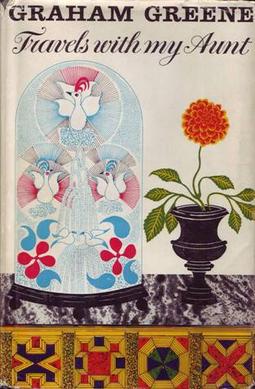
Travels with My Aunt (1969) is a novel written by English author Graham Greene.
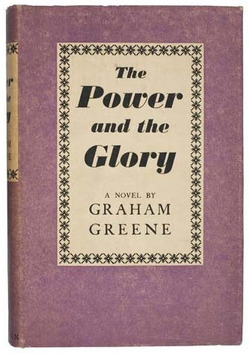
The Power and the Glory is a 1940 novel by British author Graham Greene. The title is an allusion to the doxology often recited at the end of the Lord's Prayer: "For thine is the kingdom, the power, and the glory, forever and ever, amen." It was initially published in the United States under the title The Labyrinthine Ways.

Mehdi Hassan Khan was a Pakistani ghazal singer and playback singer for Lollywood. Widely considered one of the greatest and most influential figures in the history of ghazal singing, Hassan is referred to as the "Shahenshah-e-Ghazal". Known for his "haunting" baritone voice, Hassan is credited with bringing ghazal singing to a worldwide audience. He is unique for his melodic patterns and maintaining integrity of the ragas in an innovative way.

The Almeida Theatre opened in 1980, is a 325-seat producing house with an international reputation, which takes its name from the street on which it is located, off Upper Street, in the London Borough of Islington. The theatre produces a diverse range of drama. Successful plays are often transferred to West End theatres.

Heer Ranjha is one of the four popular tragic romances of the Punjab. The other three are Mirza Sahiban, Sohni Mahiwal and Sassi Punnun. There are several poetic narrations of the story, the most famous being Heer by Waris Shah written in 1766. It tells the story of the love between Heer Sial and Dheedo Ranjha.

The Human Factor is an espionage novel by Graham Greene, first published in 1978 and adapted into the 1979 film The Human Factor, directed by Otto Preminger using a screenplay by Tom Stoppard.

The End of the Affair is a chamber opera with music by Jake Heggie and a libretto by Heggie, Heather McDonald and Leonard Foglia.
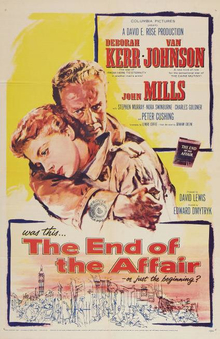
The End of the Affair is a 1955 British-American drama romance film directed by Edward Dmytryk, based on Graham Greene's 1951 novel of the same name. The film stars Deborah Kerr, Van Johnson, John Mills and Peter Cushing. It was filmed largely on location in London, particularly in and around Chester Terrace. The film was entered into the 1955 Cannes Film Festival.

Rupert Goold is an English director who works primarily in theatre. He is the artistic director of the Almeida Theatre, and was the artistic director of Headlong Theatre Company (2005–2013).

The End of the Affair is a 1999 romantic drama film written and directed by Neil Jordan and starring Ralph Fiennes, Julianne Moore and Stephen Rea.
Algernon Islay de Courcy Lyons (1922–1993) was a Welsh photographer, novelist and linguist.

Son of Sardaar is a 2012 Indian Hindi-language action comedy film directed by Ashwni Dhir. A remake of 2010 Telugu film Maryada Ramanna directed by S. S. Rajamouli, it featured Ajay Devgn, Sanjay Dutt, Sonakshi Sinha and Juhi Chawla in lead roles. Son of Sardaar was released on 13 November 2012. Salman Khan appears in a cameo role.
Henry David Leonard George Walston, Baron Walston CVO, JP was a British farmer, agricultural researcher and politician, firstly for the Liberal Party, then for Labour and for the Social Democratic Party.

Jab Tak Hai Jaan is the soundtrack album, composed by A. R. Rahman, to the 2012 Hindi film of the same name, directed by Yash Chopra that stars Shahrukh Khan, Katrina Kaif and Anushka Sharma. The film was produced by Aditya Chopra under his banner Yash Raj Films. The album has nine tracks and was released on 10 October 2012 on the firm's official record label YRF Music.
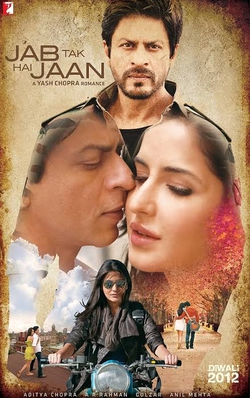
Jab Tak Hai Jaan, also simply known as JTHJ, is a 2012 Indian Hindi-language romantic drama film directed by Yash Chopra and written and produced by his son Aditya Chopra under their banner Yash Raj Films. The film stars Shah Rukh Khan, Katrina Kaif and Anushka Sharma. The story revolves around Samar Anand (Khan) a bomb disposal expert whose diary falls into the hands of an intern Akira Rai (Sharma); the diary recounts his time as a struggling immigrant in London, and later details his whirlwind romance with Meera Thapar (Kaif).
